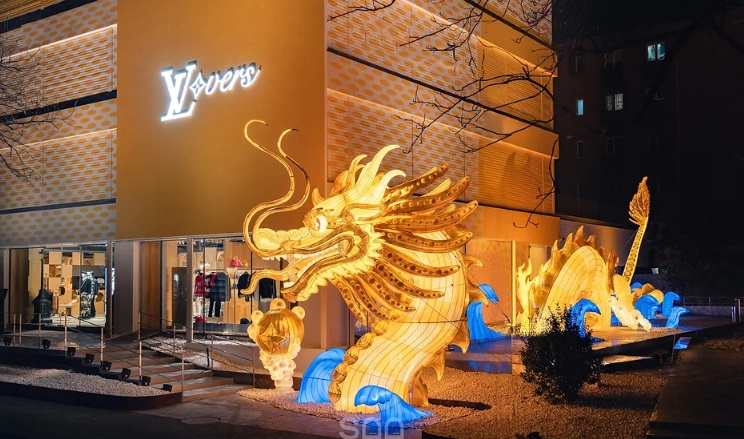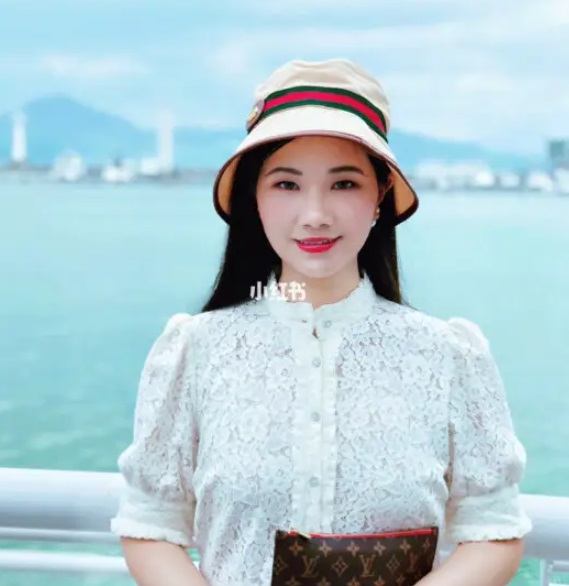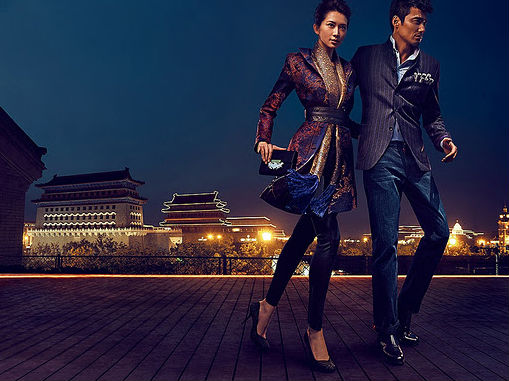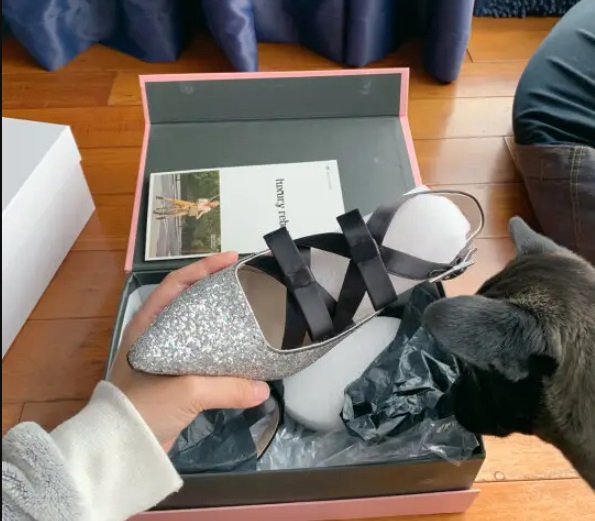In 2024, China is 40% of the global luxury market, 20% of their annual income.
China is dominating the luxury market

LUXURY IN CHINA 2024
Luxury in China, datas & Trends 2024
- Market Size: As of 2024, the Chinese luxury market is expected to continue its growth trajectory. Recent forecasts suggest it could account for nearly 40% of the global luxury market, evidencing its significant expansion.
- Consumer Spending: On average, affluent Chinese consumers allocate a substantial portion of their income to luxury goods. Reports indicate that this demographic spends approximately 20-25% of their annual income on luxury items, a rate higher than many of their counterparts in other regions.
- Young Consumer Base: The Chinese luxury market is distinct for its younger consumer base. Millennials and Generation Z, often with high disposable incomes, are a driving force in this sector, and they are expected to represent over 50% of all luxury purchases in China by 2024.
- Digital Shopping Growth: In 2024, online luxury purchases in China are projected to comprise over 30% of the total luxury sales, reflecting the digital savvy of Chinese consumers and the successful digital transformation strategies implemented by luxury brands.
- Influence on Global Trends: Chinese consumers are trendsetters in the luxury market, often influencing global fashion and luxury trends. Brands frequently tailor their designs and collections to appeal to Chinese tastes, recognizing their impact on global preferences.
- Resilience During Economic Fluctuations: Despite global economic challenges, the Chinese luxury market has shown remarkable resilience. Even in periods of slower economic growth, luxury spending has continued to rise, showcasing the robustness of this sector.
- Domestic Spending Surge: With international travel limited in recent years, there has been a noticeable surge in domestic luxury spending. Chinese consumers have increasingly turned to local shopping options for luxury goods, contributing to the strength of the domestic market.
- Cultural Resonance in Brand Strategies: Successful luxury brands in China have effectively integrated cultural elements and consumer insights into their marketing and product strategies. This cultural resonance has been key to capturing the attention and loyalty of Chinese luxury consumers.
- Government Support for Consumption: Recent government policies have been supportive of consumer spending, including luxury goods, as part of broader economic growth strategies. This has contributed positively to the expansion of the luxury market in China.
- Rising Interest in Sustainable Luxury: There is a growing interest among Chinese luxury consumers in sustainability and ethical production. Luxury brands that prioritize these values are gaining favor, reflecting a shift towards more conscious consumption in the luxury segment.

About Chinese Luxury travellers in 2024
Chinese travelers are the biggest spenders in the world. As reported by Hotels.com, the average of Chinese tourists’ expenses during their trips abroad is around 6,707 RMB per day, excluding accommodation costs.
The majority of the travel’s budget of Chinese tourists is earmarked to go shopping.
Throughout their travels, Chinese holidaymakers spend up to 57.76% of the money on retail products, representing more than half of the estimated expenses while they only spend 3.72% on attractions or entertainment.
-
Spending on International Travel: Chinese outbound tourists were among the highest spenders globally. In 2019, they spent an estimated $277 billion on international travel, contributing significantly to global tourism economies.
-
Top Destinations: Popular destinations for Chinese outbound tourists included countries in Asia such as Thailand, Japan, and South Korea, as well as long-haul destinations like the United States and various European countries. The choice of destinations often reflected factors like ease of visa procedures, cultural attractions, and shopping opportunities.
-
Digital Influence on Travel Planning: A large proportion of Chinese travelers, especially the younger generation, relied heavily on digital platforms for travel planning and bookings. Online travel agencies and social media platforms played a crucial role in influencing travel decisions.
The big amount of money than Chinese tourists spend on the destination country is the reason why governments and marketers are trying to attract these tourists, who are the most beneficial customers in the world.
During the first 11 months of this year, the number of Chinese tourists who traveled overseas was more than 190 million, being this quantity a historical record, according to official data released by tourism authorities.
Nowadays, only the 10 percent of Chinese demography can afford travel outside China but this situation is going to change due to different reasons.
Chinese consumers have distinct motivations for purchasing luxury items. Here are five key reasons:
-
Status Symbol and Social Prestige: In China, luxury goods are often seen as symbols of success and social status. Owning luxury brands is perceived as a sign of having achieved a certain level of wealth and social standing. This is particularly important in a culture that often places a high value on outward appearances and status symbols.
-
Quality and Craftsmanship: Chinese consumers are increasingly knowledgeable about and interested in the quality and craftsmanship of luxury products. They appreciate the high-quality materials, attention to detail, and superior craftsmanship that luxury brands typically offer, seeing these as a worthwhile investment.
-
Cultural and Aesthetic Appeal: Many luxury brands have incorporated elements of Chinese culture and aesthetics into their designs, which resonates with Chinese consumers. This local relevance, combined with the global appeal of luxury brands, makes these items particularly attractive.
-
Personal Reward and Self-indulgence: Buying luxury items is often seen as a form of self-reward among Chinese consumers, especially among the younger generations. It’s a way to celebrate personal achievements and indulge in one’s hard work and success.
-
Influence of Digital and Celebrity Culture: The rise of digital media and the influence of celebrities and influencers in China play a significant role in shaping luxury buying habits. Social media platforms and celebrity endorsements can greatly influence consumer preferences and drive the popularity of certain luxury brands and products.
What Chinese post on their Social media ….. what they receive on Kuaidi
In 2024 , Chinese bought 40% total luxury items of the world.
Chinese buyer in China 5 Chinese travelers are the biggest luxury market in the world.
All big luxury houses know that :
-
Louis Vuitton: A leading luxury brand in China, Louis Vuitton has seen consistent popularity due to its iconic designs and marketing strategies that resonate with Chinese consumers.
-
Gucci: Gucci has successfully appealed to the younger Chinese demographic with its modern designs and effective digital marketing campaigns.
-
Chanel: Known for its timeless elegance, Chanel remains a top choice among Chinese consumers, especially in the high-end luxury segment.
-
Hermès: Hermès is famed for its exclusivity and craftsmanship, attracting a clientele in China that values quality and heritage.
-
Prada: Prada has been popular for its innovative designs and has effectively engaged with Chinese consumers through various digital platforms.
-
Dior: Christian Dior has maintained a strong presence in China, appealing to consumers through its fashion-forward designs and successful collaborations with Chinese celebrities.
-
Rolex: As a symbol of status and prestige, Rolex watches are highly sought after in the Chinese market, known for their craftsmanship and value retention.
-
Cartier: Cartier’s jewelry and watches are popular among Chinese luxury consumers, appreciated for their elegance and craftsmanship.
-
Burberry: Burberry has captured the Chinese market with its classic designs and has been innovative in its digital engagement strategies.
-
Armani: Armani has appealed to Chinese consumers looking for sophisticated and understated luxury, with a strong presence in both fashion and lifestyle products.
@onlyj790709 Louis Vuitton China. Chinese New Year 2024. Year of the Dragon. #lv #louisvuitton #pharrellwilliams #lvmillionaire #chinesenewyear #yearofthedragon #dragonyear #lunarnewyear #cdrama #cdramalovers #cdramalover #china #shanghai #chengdu #beijing #thebund #thebundshanghai #streetstyle #chinastreestyle #shanghaistreetstyle #shanghaistreet #shanghaicitywalk #shanghaifashionweek #editorial #tiktokfashion #voguepictures #vogue #voguechina #voguesingapore
♬ original sound – J790709
According to the Wall Street Journal, luxury brands are 50% less expensive outside China and that is the reason why shopping is the main activity to Chinese travelers. However Chinese tourists not only purchase for themselves, most of their purchases are gifts for others.
To attract these big spenders it is necessary a marketing strategy in China. If you are interested to have presence in the Chinese market and attract Chinese shoppers, don’t hesitate to contact us.
Further readings
Read more
Chinese travelers are the biggest spenders in the world. As reported by Hotels.com, the average of Chinese tourists’ expenses during their trips abroad is around 6,707 RMB per day, excluding accommodation costs.
The majority of the travel’s budget of Chinese tourists is earmarked to go shopping.
Throughout their travels, Chinese holidaymakers spend up to 57.76% of the money on retail products, representing more than half of the estimated expenses while they only spend 3.72% on attractions or entertainment.
-
Spending on International Travel: Chinese outbound tourists were among the highest spenders globally. In 2019, they spent an estimated $277 billion on international travel, contributing significantly to global tourism economies.
-
Top Destinations: Popular destinations for Chinese outbound tourists included countries in Asia such as Thailand, Japan, and South Korea, as well as long-haul destinations like the United States and various European countries. The choice of destinations often reflected factors like ease of visa procedures, cultural attractions, and shopping opportunities.
-
Digital Influence on Travel Planning: A large proportion of Chinese travelers, especially the younger generation, relied heavily on digital platforms for travel planning and bookings. Online travel agencies and social media platforms played a crucial role in influencing travel decisions.
The big amount of money than Chinese tourists spend on the destination country is the reason why governments and marketers are trying to attract these tourists, who are the most beneficial customers in the world.
During the first 11 months of this year, the number of Chinese tourists who traveled overseas was more than 190 million, being this quantity a historical record, according to official data released by tourism authorities.
Nowadays, only the 10 percent of Chinese demography can afford travel outside China but this situation is going to change due to different reasons.
Chinese consumers have distinct motivations for purchasing luxury items. Here are five key reasons:
-
Status Symbol and Social Prestige: In China, luxury goods are often seen as symbols of success and social status. Owning luxury brands is perceived as a sign of having achieved a certain level of wealth and social standing. This is particularly important in a culture that often places a high value on outward appearances and status symbols.
-
Quality and Craftsmanship: Chinese consumers are increasingly knowledgeable about and interested in the quality and craftsmanship of luxury products. They appreciate the high-quality materials, attention to detail, and superior craftsmanship that luxury brands typically offer, seeing these as a worthwhile investment.
-
Cultural and Aesthetic Appeal: Many luxury brands have incorporated elements of Chinese culture and aesthetics into their designs, which resonates with Chinese consumers. This local relevance, combined with the global appeal of luxury brands, makes these items particularly attractive.
-
Personal Reward and Self-indulgence: Buying luxury items is often seen as a form of self-reward among Chinese consumers, especially among the younger generations. It’s a way to celebrate personal achievements and indulge in one’s hard work and success.
-
Influence of Digital and Celebrity Culture: The rise of digital media and the influence of celebrities and influencers in China play a significant role in shaping luxury buying habits. Social media platforms and celebrity endorsements can greatly influence consumer preferences and drive the popularity of certain luxury brands and products.
What Chinese post on their Social media ….. what they receive on Kuaidi
In 2024 , Chinese bought 40% total luxury items of the world.
Chinese buyer in China 5 Chinese travelers are the biggest luxury market in the world.
All big luxury houses know that :
-
Louis Vuitton: A leading luxury brand in China, Louis Vuitton has seen consistent popularity due to its iconic designs and marketing strategies that resonate with Chinese consumers.
-
Gucci: Gucci has successfully appealed to the younger Chinese demographic with its modern designs and effective digital marketing campaigns.
-
Chanel: Known for its timeless elegance, Chanel remains a top choice among Chinese consumers, especially in the high-end luxury segment.
-
Hermès: Hermès is famed for its exclusivity and craftsmanship, attracting a clientele in China that values quality and heritage.
-
Prada: Prada has been popular for its innovative designs and has effectively engaged with Chinese consumers through various digital platforms.
-
Dior: Christian Dior has maintained a strong presence in China, appealing to consumers through its fashion-forward designs and successful collaborations with Chinese celebrities.
-
Rolex: As a symbol of status and prestige, Rolex watches are highly sought after in the Chinese market, known for their craftsmanship and value retention.
-
Cartier: Cartier’s jewelry and watches are popular among Chinese luxury consumers, appreciated for their elegance and craftsmanship.
-
Burberry: Burberry has captured the Chinese market with its classic designs and has been innovative in its digital engagement strategies.
-
Armani: Armani has appealed to Chinese consumers looking for sophisticated and understated luxury, with a strong presence in both fashion and lifestyle products.
@onlyj790709 Louis Vuitton China. Chinese New Year 2024. Year of the Dragon. #lv #louisvuitton #pharrellwilliams #lvmillionaire #chinesenewyear #yearofthedragon #dragonyear #lunarnewyear #cdrama #cdramalovers #cdramalover #china #shanghai #chengdu #beijing #thebund #thebundshanghai #streetstyle #chinastreestyle #shanghaistreetstyle #shanghaistreet #shanghaicitywalk #shanghaifashionweek #editorial #tiktokfashion #voguepictures #vogue #voguechina #voguesingapore
♬ original sound – J790709
According to the Wall Street Journal, luxury brands are 50% less expensive outside China and that is the reason why shopping is the main activity to Chinese travelers. However Chinese tourists not only purchase for themselves, most of their purchases are gifts for others.
To attract these big spenders it is necessary a marketing strategy in China. If you are interested to have presence in the Chinese market and attract Chinese shoppers, don’t hesitate to contact us.
Further readings
Read more
China Luxury Market: Best Strategies for Fashion Brands
Luxury’s New Battleground in China: Douyin
Luxury E-Commerce In China




1 comment
italia-Mao
Americans can not compete anymore which Chinese wealthy consumers. With billionaires and the emerging middle class, the Chinese want to buy luxury goods and position themselves on top of the society